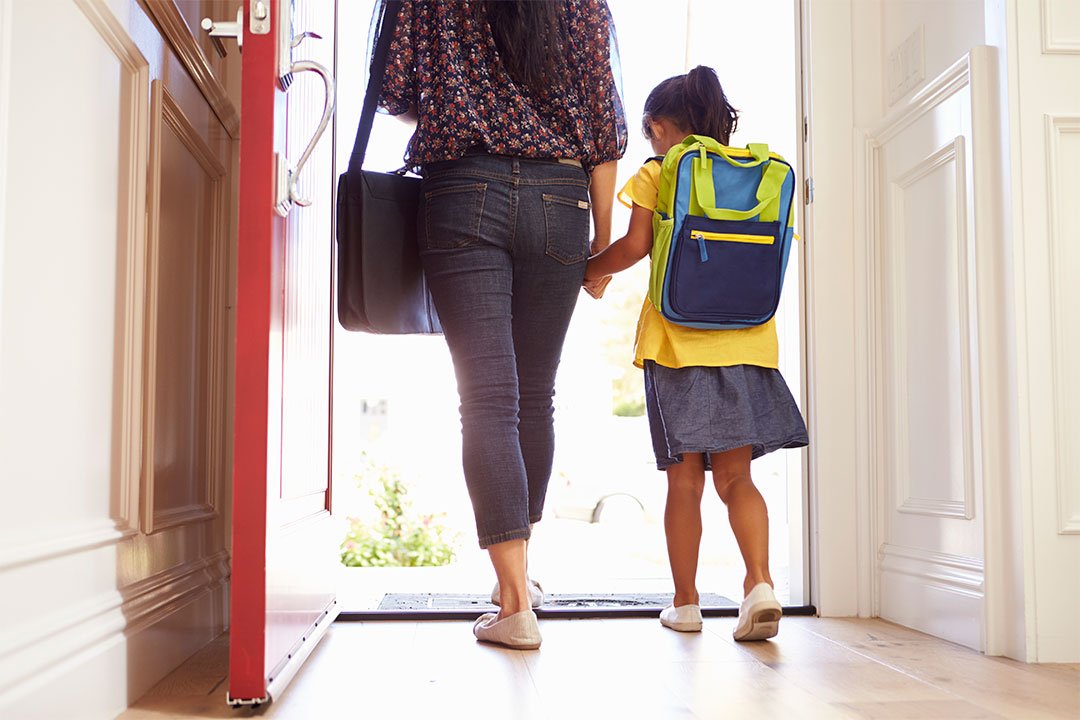Back to School Means Back to a Healthy Routine
 It's happening. The sun is setting earlier, the sumac is turning red, and soon, our Minnesota summer will officially come to an end. As nature begins its transition into fall, it's a good reminder to also start transitioning your kids back to school.
It's happening. The sun is setting earlier, the sumac is turning red, and soon, our Minnesota summer will officially come to an end. As nature begins its transition into fall, it's a good reminder to also start transitioning your kids back to school.
Sleep and nutrition
Between active summer days, erratic schedules, and late sunsets, it's completely expected that your child will be off their normal eating and sleep routines. That's why it's important to start introducing a more regular schedule as school approaches. Sleep plays a crucial role in your child's health and wellbeing. Set a regular bedtime routine that includes lights-out at the time your child needs to go to bed and no screen time one hour before bedtime.
At the same time, try to adjust your kids' eating schedule so it aligns more closely with the school year. Wake them up early for breakfast, introduce a healthy mid-morning snack, and stick to a regular lunch time.
Annual well child visits
As children get older, some parents question whether their upper elementary child, pre-teen or teenager really needs to see a doctor every year. The answer is yes. Even though your child may appear healthy, the annual visit allows your physician to screen for underlying conditions, like mental health concerns, behavioral issues, or learning disabilities.
Your physician will also monitor your child's growth rate over time, noting whether there is any significant change in body mass index. Significant changes to BMI may indicate the need for further testing and evaluation.
Eye exam
It's estimated that 80% of learning occurs through the eyes – whether reading, writing, or watching a video screen. For this reason, any impairment to a child's eyesight can be a significant health barrier to learning. Many kids will only require a brief screening at their annual doctor visit. If any potential problems appear, your child's physician will refer him or her to an eye specialist for a complete eye exam.
On the other hand, if your child already requires corrective lenses, it's important to schedule a complete eye exam with your optometrist each year to test the existing prescription and adjust as necessary.
Immunizations
The annual doctor visit also ensures that your child's immunizations are up-to-date. Minnesota law requires children enrolled in school, childcare, or early childhood education be immunized against certain diseases, unless the child is medically or non-medically exempt. While COVID-19 and flu shots are not on the list of required vaccinations, they are also highly recommended for all school age children.
Stay Active
Summertime offers endless opportunities for outdoor activities. When families transition to busy school schedules, it can be challenging to find the time to fit in exercise. Whether your child is involved in an organized sports or you choose a recreational activity your family can participate in together, the important thing is to get children exercising every day. According to the CDC, children who exercise daily build strong bones and muscles, control weight, reduce symptoms of anxiety and depression, and reduce the risk of developing health conditions.
Practice Good Hygiene
Germs can be found everywhere, but you can do your part to prevent the spread of germs by teaching your kids and teens the importance of washing their hands after using the restroom, after coughing or sneezing, blowing their nose, and before eating.
Going back to school and saying farewell to summer can be difficult for kids. By making a few small changes to care for their health, you can help make the transition a smooth one.